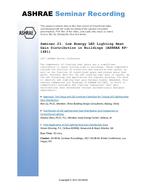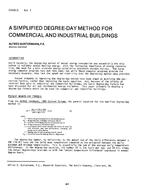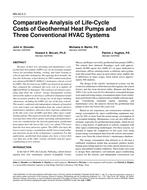Displacement ventilation has been traditionally limited in its application, due to its relatively lower cooling capacity compared withadmixture ventilation. Except in the case of assembly halls, theatres and buildings of this type, displacement ventilation has been limited in highceiling spaces applications due to the stratification associated and its effect on the comfort criteria in the occupied zone. However, the advantages ofdisplacement ventilation with ceiling heights of over 3.5 m (11.48 ft) are well known, such as a higher cooling capacity, acceptable comfort and airquality levels and reduced specific airflow rates. This paper discusses an issue of capital importance associated with the proper design ofdisplacement ventilation in tall spaces with duct-free ceilings, such as determining the optimum point of airflow return so as to ensure acceptablecomfort levels, minimize unwanted additional radiation loads from overheated ceilings and avoid undesirable temperature gradients in the occupiedzone. A practical case is studied, where it is also mentioned how the application of this system can be successfully achieved when combined withsupplementary non-displacement airflow patterns in order to reduce the impact on the performance of the displacement ventilation due to thebuilding fabric and envelope design such as higher glazing surfaces.
Citation: First International Conference on Energy and Indoor Environment for Hot Climates, Doha, Qatar, February 2014
Product Details
- Published:
- 2014
- Number of Pages:
- 8
- File Size:
- 1 file , 720 KB
- Product Code(s):
- D-2014FICEConf-9-1


